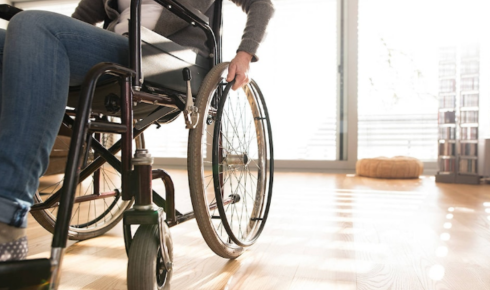Empowering Daily Life: How an Advocacy Group for Disabilities Makes a Difference for People with Disabilities

Living with a disability often brings unique challenges in education, employment, healthcare, and even in simple daily tasks. While progress has been made in creating more inclusive communities, there is still much work to do. This is where an advocacy group for disabilities plays a powerful role. These organizations work to ensure that people with disabilities are not left behind but are instead supported, respected, and empowered to live fulfilling lives.
Understanding the Role of Advocacy
An advocacy group for disabilities acts as a bridge between people with disabilities and society. Its role is not only to raise awareness about the challenges faced by individuals but also to push for meaningful change in policies, services, and community attitudes. These groups often work closely with governments, schools, healthcare providers, and businesses to promote equal opportunities.
At its core, advocacy is about giving people a voice. Many individuals with disabilities may struggle to have their concerns heard or their needs met. Through collective action, advocacy groups make sure that those voices are amplified and respected.
Promoting Accessibility and Inclusion
One of the most significant contributions of an advocacy group for disabilities is promoting accessibility. Accessibility goes beyond physical spaces like ramps and elevators. It includes access to education, job opportunities, healthcare, and digital platforms. Advocacy groups work tirelessly to ensure that these areas are designed in ways that allow everyone, regardless of ability, to participate fully.
For example, an advocacy group may campaign for schools to provide learning materials in different formats, such as braille or audio, so that students with visual impairments can thrive academically. In workplaces, they may encourage employers to adopt inclusive hiring practices and provide accommodations that help employees with disabilities succeed.
Encouraging Independence in Daily Life
Independence is a key factor in leading a dignified and empowered life. An advocacy group for disabilities helps individuals gain more control over their daily routines. This may involve pushing for better public transportation services, making sure healthcare facilities are equipped with the right resources, or guiding families in accessing government support programs.
By working on these practical issues, advocacy groups reduce barriers and create an environment where people with disabilities can live more independently. This not only improves individual confidence but also reduces feelings of isolation.
Building Awareness and Changing Attitudes
Changing public attitudes is another vital mission of an advocacy group for disabilities. Many people still hold misconceptions about what it means to live with a disability. Advocacy groups run awareness campaigns, workshops, and community events to educate the public. These efforts highlight the abilities, talents, and contributions of people with disabilities rather than focusing solely on limitations.
Such initiatives are powerful in breaking down stereotypes and fostering a culture of respect and empathy. When society becomes more understanding, people with disabilities feel more valued and included in every aspect of life.
Supporting Families and Caregivers
Disabilities not only affect individuals but also touch the lives of their families and caregivers. Advocacy groups recognize this and provide essential support systems. Families often face emotional, financial, and practical challenges while caring for loved ones with disabilities. By offering guidance, resources, and counseling, advocacy groups help families feel less alone in their journey.
They also create networks where families can connect with one another, share experiences, and find comfort in community support. This sense of belonging can make a significant difference in coping with daily responsibilities.
Driving Policy and Legal Changes
Beyond community support, advocacy groups play a crucial role in shaping laws and policies. They work to protect the rights of people with disabilities by influencing decision-makers at local and national levels. From campaigning for stronger anti-discrimination laws to ensuring that public spaces meet accessibility standards, their work creates lasting improvements that benefit future generations.
Through persistent advocacy, governments are reminded that equal rights and opportunities are not optional but essential. These changes, once implemented, provide a foundation for people with disabilities to thrive in society.
Conclusion
An advocacy group for disabilities is far more than a support organization—it is a driving force for change, equality, and empowerment. By promoting accessibility, independence, awareness, and legal rights, these groups make a real difference in the daily lives of people with disabilities. Their work ensures that individuals are not defined by limitations but are recognized for their strengths, talents, and potential.
Empowering daily life means creating a world where everyone has the chance to live with dignity and purpose. Thanks to the efforts of advocacy groups, this vision moves closer to reality every day.





